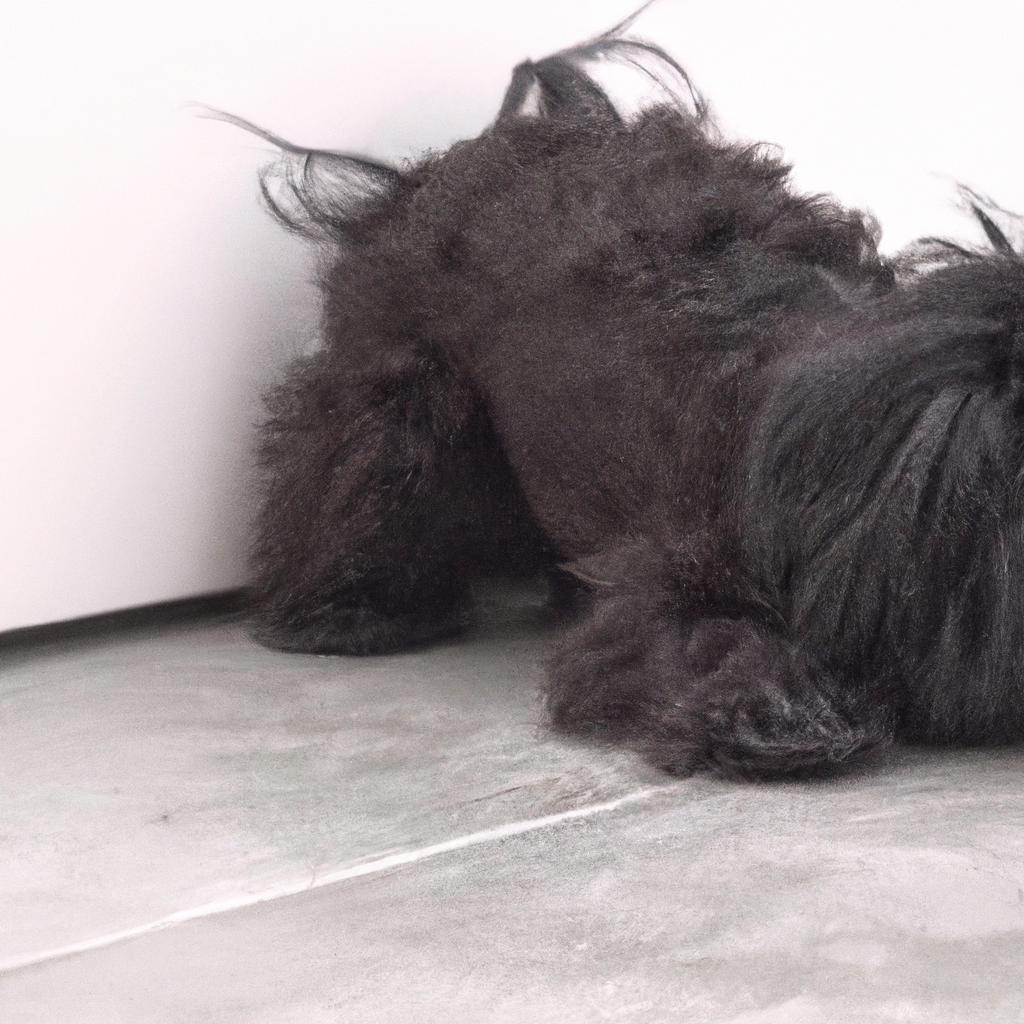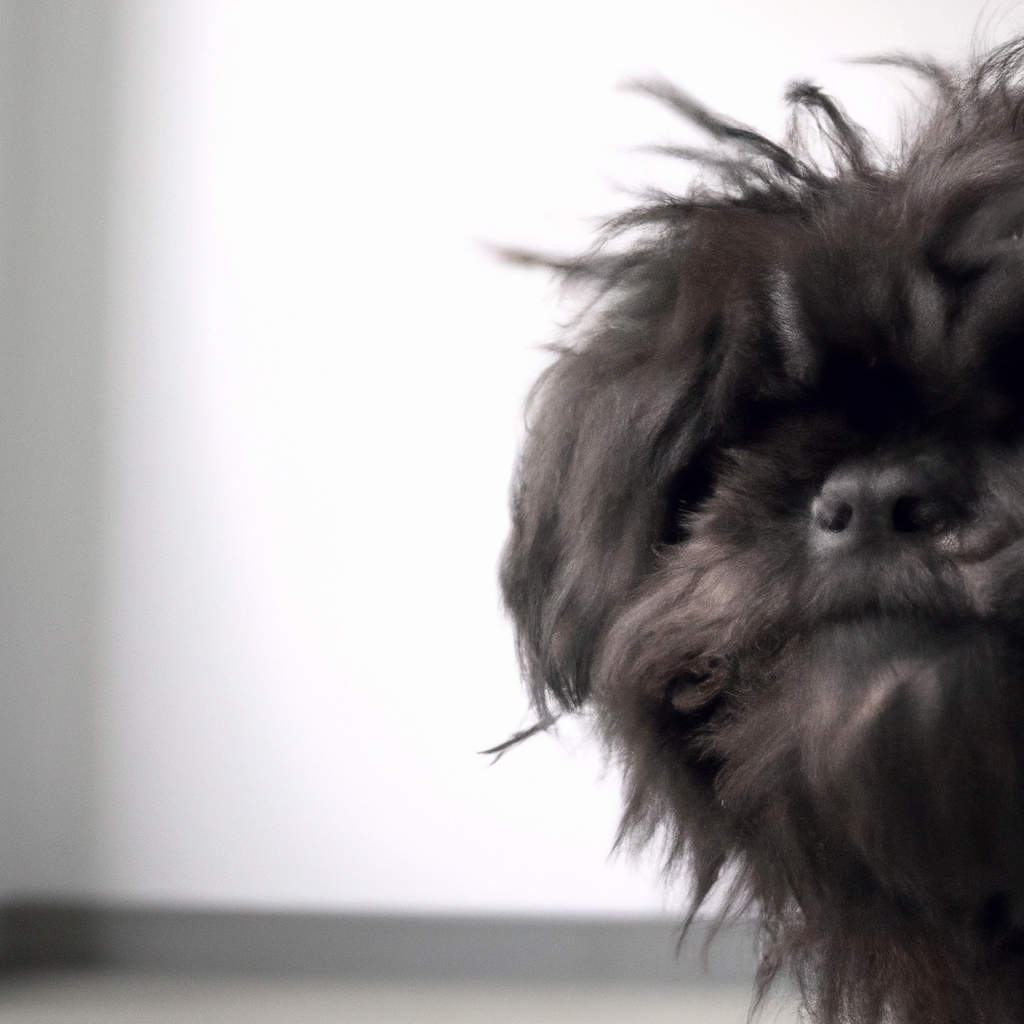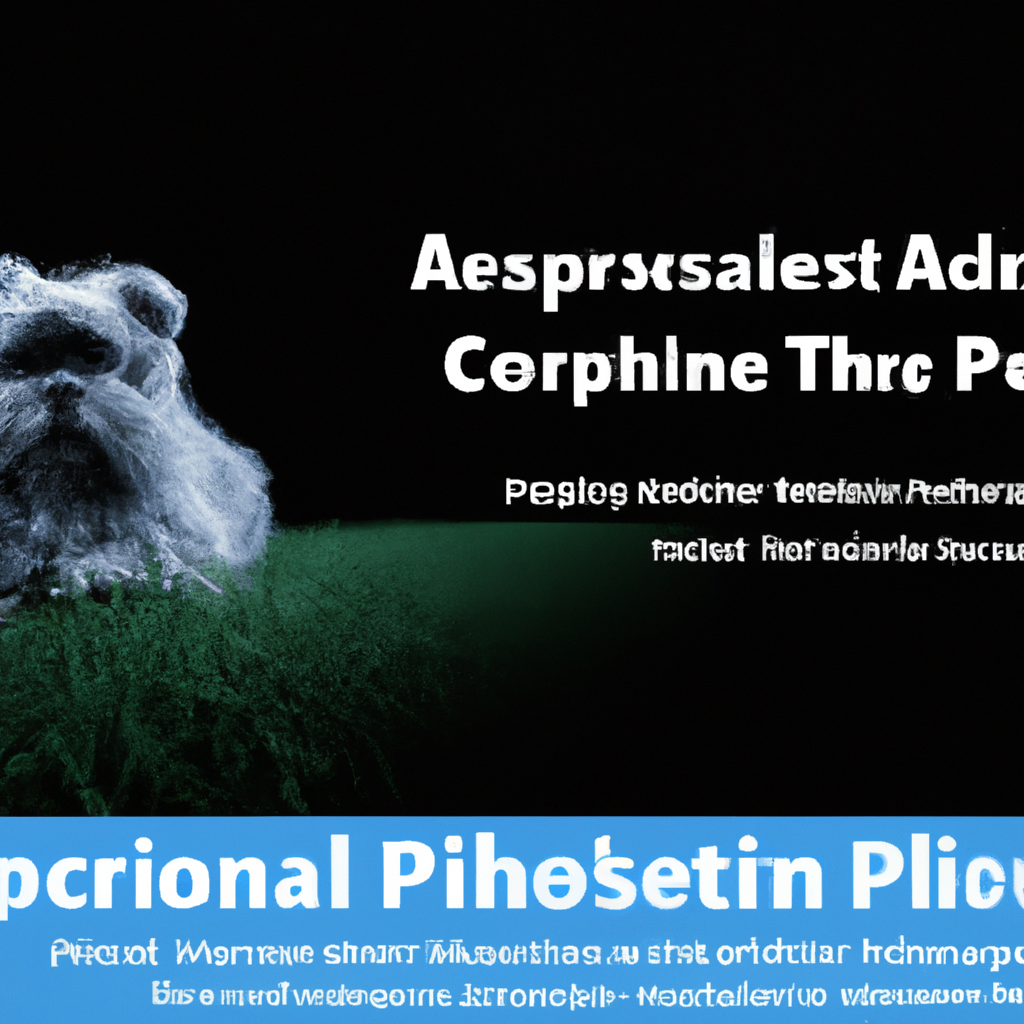Affenpinschers, a breed of small dogs known for their distinctive “monkey-like” appearance, are generally healthy but can be prone to certain health complications. These include heart issues, respiratory problems, dental diseases, and orthopedic conditions such as hip dysplasia and patellar luxation. Eye problems like cataracts and glaucoma, as well as skin allergies, can also affect this breed. To care for an Affenpinscher, regular veterinary check-ups are essential to detect any potential health issues early. A balanced diet, regular exercise, and proper dental hygiene are also crucial for their overall health. Additionally, due to their small size and delicate bone structure, they should be handled with care to prevent injuries.
Understanding the Common Health Issues in Affenpinschers
Affenpinschers, often referred to as “Monkey Dogs” due to their distinct primate-like appearance, are small but sturdy dogs known for their playful and confident nature. While these dogs are generally healthy, they are prone to certain health complications that potential owners should be aware of. Understanding these common health issues in Affenpinschers can help you provide the best care for your furry friend.
One of the most common health issues in Affenpinschers is hip dysplasia, a genetic condition where the hip joint doesn’t fit into the hip socket properly. This can lead to discomfort, pain, and even arthritis in severe cases. Regular exercise and a balanced diet can help manage this condition, but in some cases, surgery may be necessary.
Another health issue that Affenpinschers often face is a condition known as patellar luxation. This is when the kneecap dislocates or moves out of its normal position, causing the dog to limp or hop. While mild cases can be managed with physical therapy and weight management, severe cases may require surgical intervention.
Affenpinschers are also prone to certain eye conditions, such as cataracts and progressive retinal atrophy (PRA). Cataracts can cause cloudiness in the eye lens, leading to impaired vision, while PRA is a degenerative eye disorder that can eventually lead to blindness. Regular eye check-ups can help detect these conditions early, and treatments can range from eye drops to surgery.
Heart disease, particularly a condition known as mitral valve disease, is another health complication that can affect Affenpinschers. This condition causes the heart’s mitral valve to deteriorate, leading to heart failure if left untreated. Regular vet check-ups can help detect this condition early, and medication can help manage the symptoms.
Despite these potential health issues, it’s important to remember that not all Affenpinschers will suffer from these conditions. Many live healthy, happy lives with the right care and attention. Regular vet check-ups, a balanced diet, and plenty of exercises can go a long way in keeping your Affenpinscher healthy.
When it comes to diet, Affenpinschers need a balanced diet rich in protein, carbohydrates, and healthy fats. Avoid feeding them human food, as some foods can be toxic to dogs. Instead, opt for high-quality dog food that meets their nutritional needs.
Exercise is also crucial for Affenpinschers. These dogs are energetic and love to play, so make sure they get plenty of physical activity each day. This can help keep their weight in check and reduce the risk of health complications like hip dysplasia and patellar luxation.
Lastly, regular grooming is essential for Affenpinschers. These dogs have a thick, wiry coat that needs regular brushing to prevent matting and tangling. Regular grooming can also help you spot any skin issues early, such as rashes or lumps.
In conclusion, while Affenpinschers are prone to certain health complications, these can often be managed with the right care and attention. Regular vet check-ups, a balanced diet, plenty of exercises, and regular grooming can help keep your Affenpinscher healthy and happy. Remember, a healthy dog is a happy dog, and your Affenpinscher deserves nothing but the best.
How to Manage Dental Problems in Affenpinschers
Affenpinschers, affectionately known as “Monkey Dogs,” are small, charming, and energetic dogs that are loved for their unique appearance and playful nature. However, like any breed, they are prone to certain health complications, one of the most common being dental problems. Understanding these issues and knowing how to manage them can significantly improve the quality of life for your Affenpinscher.
Dental problems in Affenpinschers can range from mild to severe. They include periodontal disease, tooth decay, and tooth loss. Periodontal disease, the most common dental issue, is an infection of the tissues surrounding the teeth. It starts with plaque buildup, which hardens into tartar if not removed. This can lead to inflammation and infection of the gums, causing discomfort and potentially leading to tooth loss.
Tooth decay, on the other hand, is caused by bacteria that feed on food particles left in the dog’s mouth. This process produces acids that erode the tooth enamel, leading to cavities. If left untreated, tooth decay can cause pain, difficulty eating, and eventually tooth loss.
So, how can you manage these dental problems in your Affenpinscher? The first step is prevention. Regular brushing of your dog’s teeth is crucial. Aim to brush your Affenpinscher’s teeth at least two to three times a week. Use a dog-friendly toothpaste and a soft-bristled toothbrush designed for small breeds. This will help remove plaque before it hardens into tartar.
Diet also plays a significant role in dental health. Feeding your Affenpinscher a balanced diet can help maintain healthy teeth and gums. Dry kibble can help scrape off plaque, while certain dental chews and toys can also contribute to oral hygiene. Avoid feeding your dog sugary foods, as these can contribute to tooth decay.
Regular veterinary check-ups are also essential in managing dental problems. Your vet can perform a thorough dental examination and professional cleaning, which can help detect and treat dental issues early. They can also provide advice tailored to your dog’s specific needs.
If your Affenpinscher already has dental problems, don’t despair. Many issues can be managed with proper care and treatment. For instance, periodontal disease can be treated with a professional cleaning, followed by regular brushing and a special dental diet. Tooth decay can be addressed with fillings or extractions, if necessary. In severe cases, your vet may recommend a dental specialist.
Remember, dental problems can cause discomfort and pain for your Affenpinscher, and they can also lead to more serious health issues if left untreated. Therefore, it’s crucial to take a proactive approach to your dog’s dental health. Regular brushing, a balanced diet, and routine vet check-ups can go a long way in preventing and managing dental problems.
In conclusion, while Affenpinschers are prone to dental problems, these issues can be managed with proper care and attention. By understanding the potential dental issues your Affenpinscher may face and taking steps to prevent and treat them, you can help ensure your furry friend enjoys a happy, healthy life.
Heart Disease in Affenpinschers: Prevention and Treatment
Affenpinschers, often referred to as “Monkey Dogs” due to their distinctive, primate-like appearance, are a small but sturdy breed known for their playful and confident nature. However, like all breeds, Affenpinschers are prone to certain health complications, one of the most common being heart disease. Understanding the risks, prevention methods, and treatment options for heart disease in Affenpinschers is crucial for any owner who wants to ensure their furry friend leads a long, healthy life.
Heart disease in Affenpinschers can take several forms, but the most common is mitral valve disease, a condition where the heart’s mitral valve deteriorates. This can lead to congestive heart failure, a serious condition that requires immediate veterinary attention. Other forms of heart disease that can affect Affenpinschers include dilated cardiomyopathy, where the heart becomes enlarged, and arrhythmias, or irregular heartbeats.
Preventing heart disease in Affenpinschers begins with regular veterinary check-ups. Your vet can listen to your dog’s heart and detect any irregularities that may be early signs of heart disease. If your vet detects a murmur or other abnormality, they may recommend further testing such as an echocardiogram or electrocardiogram. These tests can provide a more detailed picture of your dog’s heart health and help your vet determine the best course of action.
In addition to regular vet visits, a healthy diet and regular exercise are key to preventing heart disease in Affenpinschers. These dogs are prone to obesity, which can put extra strain on the heart. Feeding your Affenpinscher a balanced diet and ensuring they get plenty of physical activity can help keep their weight in check and their heart healthy.
If your Affenpinscher is diagnosed with heart disease, it’s important not to panic. Many forms of heart disease can be managed with medication and lifestyle changes. Your vet may prescribe drugs to help control your dog’s heart rate, reduce fluid build-up, or strengthen the heart muscle. They may also recommend dietary changes or increased exercise to help manage your dog’s condition.
In some cases, surgery may be necessary to treat heart disease in Affenpinschers. This is typically reserved for severe cases or when medication and lifestyle changes aren’t enough to manage the condition. Surgical options can include valve repair or replacement, pacemaker implantation, or other procedures to improve heart function.
Caring for an Affenpinscher with heart disease can be challenging, but with the right approach, you can help your dog live a happy, comfortable life. Regular vet visits, a healthy diet and exercise routine, and appropriate medication or surgical treatment can all contribute to managing your dog’s condition and improving their quality of life.
In conclusion, while heart disease is a common health complication in Affenpinschers, it’s not a death sentence. With early detection, appropriate treatment, and dedicated care, Affenpinschers with heart disease can continue to live fulfilling lives. As an owner, understanding the risks and knowing how to care for your Affenpinscher can make all the difference in their health and happiness.
Hip Dysplasia in Affenpinschers: Causes and Care

Affenpinschers, affectionately known as “Monkey Dogs,” are small, sturdy dogs known for their playful and adventurous nature. However, like all breeds, they are prone to certain health complications. One of the most common issues in Affenpinschers is hip dysplasia, a condition that can significantly impact their quality of life. Understanding the causes and care for this condition can help Affenpinscher owners ensure their furry friends live a long, healthy, and happy life.
Hip dysplasia is a genetic disorder that affects the hip joint. It occurs when the ball and socket of the hip joint do not fit together properly, causing the joint to wear down over time. This can lead to pain, inflammation, and eventually, arthritis. While it’s most commonly seen in larger breeds, Affenpinschers are also susceptible to this condition.
The exact cause of hip dysplasia in Affenpinschers is not entirely understood, but it’s believed to be a combination of genetics and environmental factors. Some dogs may be born with a predisposition to the condition, while others may develop it due to factors such as poor nutrition, obesity, or lack of exercise.
Early detection is key in managing hip dysplasia. Affenpinscher owners should be aware of the signs and symptoms, which can include difficulty standing up or climbing stairs, decreased activity, loss of thigh muscle mass, and a noticeable limp or change in gait. If you notice any of these signs in your Affenpinscher, it’s important to consult with a veterinarian as soon as possible.
Once diagnosed, the treatment for hip dysplasia in Affenpinschers can vary depending on the severity of the condition. In mild cases, lifestyle changes such as a balanced diet and regular, low-impact exercise can help manage symptoms. Your vet may also recommend physical therapy or pain management techniques such as medication or joint supplements.
In more severe cases, surgical intervention may be necessary. There are several surgical options available, ranging from minimally invasive procedures to total hip replacement. The best course of action will depend on your dog’s age, overall health, and the severity of their condition.
While hip dysplasia can be a daunting diagnosis, it’s important to remember that with proper care and management, Affenpinschers with this condition can still lead happy and fulfilling lives. Regular check-ups with your vet, a healthy diet, and appropriate exercise are all crucial components of caring for an Affenpinscher with hip dysplasia.
Moreover, if you’re considering adding an Affenpinscher to your family, it’s a good idea to inquire about the dog’s lineage. Reputable breeders should be able to provide information about the parents’ health history, which can give you an idea of any potential genetic risks.
In conclusion, while hip dysplasia is a common health complication in Affenpinschers, it doesn’t have to define your dog’s life. With early detection, appropriate treatment, and dedicated care, your Affenpinscher can enjoy a high quality of life, full of the playfulness and adventure that this breed is known for.
Patellar Luxation in Affenpinschers: Symptoms and Solutions
Affenpinschers, affectionately known as “Monkey Dogs,” are small, charming, and energetic dogs that are loved for their unique appearance and playful nature. However, like all breeds, Affenpinschers are prone to certain health complications. One of the most common issues they face is Patellar Luxation. Understanding this condition, its symptoms, and how to care for an Affenpinscher suffering from it is crucial for any owner of this delightful breed.
Patellar Luxation, also known as slipped stifles, is a common condition in small dogs, including Affenpinschers. It occurs when the dog’s patella, or kneecap, dislocates or moves out of its normal location. This can cause discomfort and, in severe cases, can lead to lameness or an abnormal gait.
The symptoms of Patellar Luxation in Affenpinschers can vary depending on the severity of the condition. In mild cases, your dog may occasionally lift a hind leg while running or walking, or they may skip or hop for a few steps. In more severe cases, the dog may show signs of pain and discomfort, have difficulty walking, or may not be able to move the affected leg at all.
If you notice any of these symptoms in your Affenpinscher, it’s important to consult with a veterinarian as soon as possible. They can diagnose the condition through a physical examination and, if necessary, recommend appropriate treatment options.
Treatment for Patellar Luxation in Affenpinschers can range from non-surgical management to surgery, depending on the severity of the condition. Non-surgical treatments often involve physical therapy and weight management to reduce strain on the affected knee. In some cases, pain medication may also be prescribed.
However, in severe cases where the dog is in pain or unable to walk, surgery may be necessary. The goal of the surgery is to realign the kneecap to its normal position and prevent it from dislocating again. Post-surgery, your Affenpinscher may require physical therapy and a period of rest to fully recover.
As an Affenpinscher owner, there are also preventative measures you can take to reduce the risk of Patellar Luxation. Regular exercise can help to strengthen your dog’s leg muscles and keep their joints healthy. However, it’s important to avoid activities that put excessive strain on your dog’s knees, such as jumping or rough play. A balanced diet can also help to maintain a healthy weight, reducing the strain on your dog’s joints.
In conclusion, while Patellar Luxation is a common health complication in Affenpinschers, it can be managed and even prevented with the right care. Regular vet check-ups are crucial to catch any potential issues early, and a healthy lifestyle can go a long way in keeping your Affenpinscher happy and healthy. Remember, your furry friend relies on you for their well-being, so it’s up to you to ensure they get the best care possible.
Caring for an Affenpinscher with Breathing Problems
Affenpinschers, affectionately known as “Monkey Dogs,” are a small breed of dog that originated in Germany. They are known for their distinctive appearance, playful nature, and loyal companionship. However, like any breed, Affenpinschers are prone to certain health complications, one of the most common being breathing problems. Understanding these issues and knowing how to care for an Affenpinscher with such problems is crucial for any owner of this charming breed.
Breathing problems in Affenpinschers are often linked to their brachycephalic nature. This term refers to dogs with short noses and flat faces, a characteristic that can lead to certain respiratory issues. The most common of these is Brachycephalic Obstructive Airway Syndrome (BOAS), a condition that can cause symptoms such as snoring, difficulty breathing, and even collapse in severe cases.
Now, you might be wondering, how can I tell if my Affenpinscher has BOAS? Well, the signs can be quite noticeable. If your Affenpinscher is snorting, panting excessively, struggling to breathe after exercise, or has a bluish tongue or gums, it’s time to consult a vet. These symptoms indicate that your dog is not getting enough oxygen, which can lead to serious health complications if left untreated.
So, what can you do if your Affenpinscher has been diagnosed with BOAS or another breathing problem? The first step is to ensure that your dog maintains a healthy weight. Obesity can exacerbate breathing problems in Affenpinschers, so a balanced diet and regular exercise are key. However, it’s important to note that exercise should be moderate and not overly strenuous, as this can put additional strain on your dog’s respiratory system.
In addition to maintaining a healthy weight, it’s also crucial to keep your Affenpinscher cool, especially during the warmer months. Heat can worsen breathing problems in brachycephalic dogs, so make sure your Affenpinscher has access to shade and fresh water at all times. On particularly hot days, consider using a cooling mat or vest to help your dog stay comfortable.
In some cases, medication or surgery may be necessary to manage your Affenpinscher’s breathing problems. Your vet can provide guidance on the best course of action based on your dog’s specific needs. It’s important to follow your vet’s advice closely and to keep up with regular check-ups to monitor your dog’s condition.
Caring for an Affenpinscher with breathing problems can certainly be challenging, but with the right knowledge and approach, you can help your furry friend lead a comfortable and happy life. Remember, the key is to be proactive in managing your dog’s health. Regular vet visits, a healthy lifestyle, and a keen eye for symptoms can go a long way in ensuring your Affenpinscher’s well-being.
In conclusion, while Affenpinschers are prone to certain health complications such as breathing problems, these issues can be managed effectively with the right care. By understanding the signs of respiratory issues, maintaining a healthy lifestyle for your dog, and seeking timely veterinary care, you can ensure that your Affenpinscher enjoys a long, happy, and healthy life. After all, our furry friends deserve nothing less.
Skin Allergies in Affenpinschers: Effective Treatments
Affenpinschers, affectionately known as “Monkey Dogs,” are small, charming, and energetic dogs that are loved by many for their unique appearance and playful nature. However, like any breed, Affenpinschers are prone to certain health complications, one of the most common being skin allergies. Understanding these allergies, their causes, and effective treatments is crucial for any Affenpinscher owner who wants to ensure their furry friend lives a happy, healthy life.
Skin allergies in Affenpinschers can manifest in various ways, including excessive scratching, redness, sores, and even hair loss. These symptoms can be distressing for both the dog and the owner. The allergies are often caused by environmental factors such as pollen, dust mites, and mold spores. Food allergies can also contribute to skin problems in Affenpinschers. Common food allergens include beef, chicken, dairy, and wheat.
Now, let’s delve into the effective treatments for skin allergies in Affenpinschers. The first step in treating skin allergies is identifying the cause. This may involve a process of elimination, such as changing the dog’s diet or environment to see if symptoms improve. A visit to the vet is always a good idea when symptoms first appear. The vet can conduct tests to identify specific allergens and recommend appropriate treatments.
One common treatment for skin allergies in dogs is antihistamines. These medications can help reduce itching and other allergic reactions. However, they should only be used under the guidance of a vet, as they can have side effects. Topical treatments, such as creams and shampoos, can also provide relief from symptoms. These products often contain ingredients like oatmeal and aloe vera, which can soothe irritated skin.
In more severe cases, a vet may recommend corticosteroids. These powerful drugs can significantly reduce inflammation and itching but should be used sparingly due to potential side effects. Another option is immunotherapy, which involves exposing the dog to small amounts of the allergen to build up immunity over time. This treatment is typically used for allergies that can’t be avoided, such as pollen.
While these treatments can be effective, prevention is always the best medicine. Regular grooming can help remove allergens from your Affenpinscher’s coat and skin. Feeding your dog a balanced diet can also help maintain healthy skin and reduce the risk of food allergies. If you suspect your dog has a food allergy, consider switching to a hypoallergenic diet.
In conclusion, skin allergies in Affenpinschers can be a significant concern, but with the right knowledge and care, they can be effectively managed. It’s essential to monitor your Affenpinscher for signs of skin allergies and seek veterinary advice if symptoms appear. With the right treatment and preventative measures, your Affenpinscher can live a comfortable and itch-free life.
Remember, every Affenpinscher is unique, and what works for one may not work for another. It’s all about understanding your dog’s specific needs and responding accordingly. After all, our furry friends rely on us to keep them healthy and happy, and there’s nothing more rewarding than seeing your Affenpinscher thrive.
Eye Health in Affenpinschers: Common Issues and Care Tips
Affenpinschers, often referred to as “Monkey Dogs” due to their distinctive, primate-like appearance, are a small but sturdy breed known for their playful and adventurous nature. However, like all breeds, Affenpinschers are prone to certain health complications, particularly concerning their eyes. Understanding these common issues and knowing how to care for them can significantly improve the quality of life for these charming little dogs.
One of the most common eye health issues in Affenpinschers is cataracts. This condition, which often develops as the dog ages, causes a clouding of the lens in the eye, leading to decreased vision and, in severe cases, blindness. While cataracts can be a natural part of aging, they can also be caused by diabetes, trauma, or exposure to certain toxins. Regular vet check-ups can help detect cataracts early, and surgical intervention can often restore vision.
Another common eye issue in Affenpinschers is Progressive Retinal Atrophy (PRA). This is a group of genetic diseases that cause the retina to deteriorate over time, leading to eventual blindness. Unfortunately, there is currently no cure for PRA, but early detection can help manage the condition and slow its progression. Regular eye exams are crucial for early detection, and genetic testing can identify Affenpinschers at risk of developing PRA.
Glaucoma, a condition caused by increased pressure within the eye, is another concern for Affenpinschers. This can lead to pain, redness, and eventually, loss of vision. Glaucoma can be primary, meaning it’s hereditary, or secondary, resulting from other eye conditions like cataracts or uveitis. Treatment typically involves medication to reduce the eye pressure, and in some cases, surgery may be necessary.
Now that we’ve discussed some of the common eye health issues in Affenpinschers, let’s talk about how to care for them. Regular vet check-ups are essential for early detection of these conditions. Your vet can perform a thorough eye exam and recommend treatment options if necessary. Additionally, genetic testing can be beneficial for identifying dogs at risk of hereditary conditions like PRA.
At home, you can also take steps to protect your Affenpinscher’s eye health. Regularly check your dog’s eyes for signs of redness, cloudiness, or discharge. If you notice any changes, it’s important to seek veterinary care promptly. Additionally, keep your dog’s face clean and free of debris to prevent irritation and infection.
Nutrition also plays a crucial role in maintaining eye health. A balanced diet rich in antioxidants, particularly vitamins A and C, can help protect your dog’s eyes. There are also specific dog foods and supplements designed to support eye health, which can be a good option for breeds prone to eye issues.
Exercise caution when playing with your Affenpinscher, as their adventurous nature can sometimes lead to eye injuries. Avoid toys with sharp edges, and be mindful of potential hazards in your dog’s environment.
In conclusion, while Affenpinschers are prone to certain eye health issues, with regular vet check-ups, a healthy diet, and a safe environment, these conditions can often be managed effectively. By understanding the potential health complications and knowing how to care for them, you can help ensure your Affenpinscher lives a long, happy, and healthy life.Affenpinschers, like any breed, are prone to certain health complications. These include heart problems, hip dysplasia, respiratory issues, and eye conditions such as cataracts and glaucoma. They may also suffer from dental issues due to their small mouths. Regular veterinary check-ups are crucial to detect any potential health problems early. A balanced diet, regular exercise, and proper dental care can help maintain the Affenpinscher’s health. Additionally, regular grooming can prevent skin conditions and infections. Therefore, while Affenpinschers may have potential health complications, with appropriate care and attention, they can lead healthy and happy lives.





